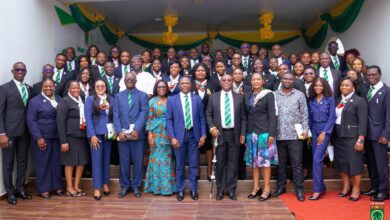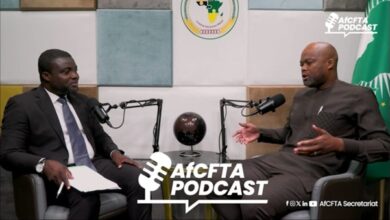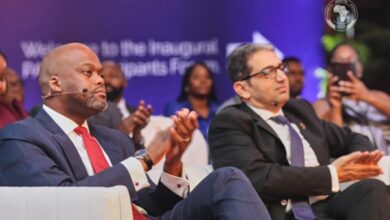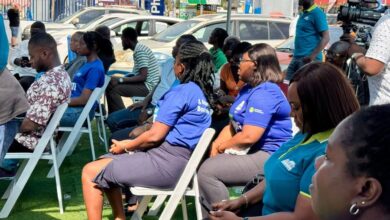Ecobank Champions Sustainable Growth for Ghana’s Educational Institutions
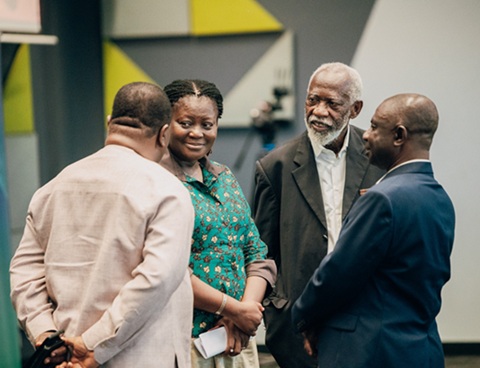
Ecobank Ghana is leading the conversation on the future of education by providing financial solutions that help schools become resilient and sustainable. At the Ecobank Education Sector Seminar, the bank reaffirmed its commitment to supporting educational institutions beyond just banking, focusing on long-term partnerships that ensure financial stability and growth.
Speaking at the event, Mrs. Charlotte Amanquah, Regional Head of Commercial Banking at Ecobank Ghana, emphasized that education is a cornerstone of national development. She noted that the theme, “Building Lasting Educational Institutions,” was a timely reminder for stakeholders to adopt sustainable financial models.
“Education is the most powerful tool for transformation, and we at Ecobank are committed to helping institutions build a strong financial foundation for the future,” she stated.
She highlighted Ecobank’s range of financial products designed to support schools, including flexible loan facilities, cash management solutions, and advisory services to ensure institutions can expand, manage costs, and remain financially resilient.
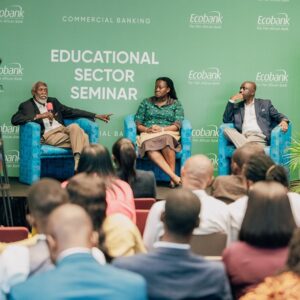
Mrs. Lydia Anno: Inclusive Education and the Business of Schools
As a seasoned educator and Founder of The McCarthy Hill School, Mrs. Lydia Anno shared valuable lessons on building inclusive and financially sustainable educational institutions. She recounted how her school was designed to accommodate students with diverse learning needs, including autism, ADHD, and Down syndrome, ensuring that every child has access to quality education.
“Our vision was to create a school big enough to offer a wide range of learning resources but small enough to give personalized attention to students,” she explained.
Mrs. Anno emphasized the importance of experiential learning, revealing that her school integrates gardening, animal care, and hands-on projects into the curriculum.
“We have a petting zoo and a garden where students take care of animals and plants. This teaches them responsibility and problem-solving skills beyond textbooks,” she noted.
On financial sustainability, she stressed that while tuition fees remain the primary source of revenue, the focus should not be solely on profit but on long-term impact and stability.
“We didn’t start the school as a business venture; our priority has always been the students. That philosophy has guided our growth over the years.”
Prof. Stephen Adei: Leadership, Vision, and Financial Integrity
Renowned academic and Executive Chairman of Ghana Christian International High School, Prof. Stephen Adei, spoke on the fundamentals of building lasting institutions. He stressed that educational institutions must define their purpose and stick to a clear vision to ensure longevity.
“If your school is going to last, you must have a clear idea of the kind of student you want to produce. This vision should shape everything—from teaching methods to institutional culture,” he advised.
He also shared his school’s experience in navigating financial crises, particularly during the COVID-19 pandemic, highlighting the importance of financial reserves to sustain operations for at least six months.
“Integrity pays in the long run. When we moved to Dodowa, Barclays Bank gave me $900,000 on my signature alone—no collateral. Why? Because they trusted my integrity.”
Prof. Adei urged school owners to adopt prudent financial management practices such as realistic school fees, creating endowment funds, and maintaining financial discipline to ensure long-term sustainability.
A Call for Sustainable Educational Models
The Ecobank Education Sector Seminar reinforced that strong leadership, financial integrity, and inclusivity are crucial to the survival of Ghana’s educational institutions. With Ecobank providing the financial backing and experts like Mrs. Anno and Prof. Adei sharing insights, Ghana’s education sector is being guided toward a more resilient and impactful future.

